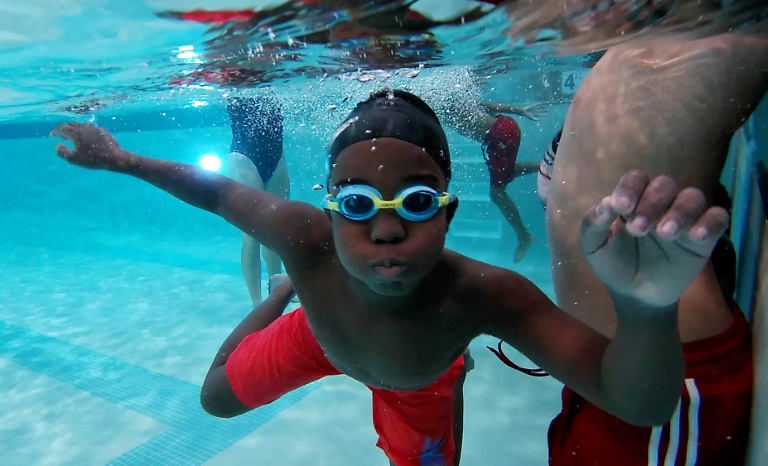Do cold water plunges make a difference? Science says ‘yes’

A Black youth takes part in a class sponsored by Swim Up, which promotes swimming among African Americans – Copyright AFP Agnes BUN
Cold exposure might help prevent diseases and potentially even slow down ageing at a cellular level.
A cold plunge or cold water immersion refers to a short dip in cold water that could offer health perks. This technique has long been used by athletes; it could help with muscle recovery, cold plunges have become popular with a range of people looking for physical and mental health benefits.
Cold water immersion for seven days significantly improves cellular resilience and autophagic function, helping cells manage stress better. This adaptation could enhance health and longevity, potentially preventing diseases and slowing ageing at a cellular level. In other words, cold water plunges, whilst a shock to the system, may actually be good for you.
The study comes from the Human and Environmental Physiology Research Laboratory (HEPRU) at the University of Ottawa. The investigation has unveiled significant findings on the effects of cold-water acclimation on autophagic (this is the cells’ recycling system, which promotes cellular health) and apoptotic (which means the programmed cell death that gets rid of damaged cells) responses in young males.
The research highlights the potential for cold exposure to enhance cellular resilience against stress.
There is some evidence that regular cold-water plunges can help your immune system. This could be because the stress hormones in the body are released when a person is subjected to a cold plunge. This may help the individual to prepare to fight off sicknesses.
The study involved ten healthy young males who underwent cold-water immersion at 14°C = for one hour across seven consecutive days. Blood samples were collected to analyze the participants’ cellular responses before and after the acclimation period.
This indicated that repeated cold exposure significantly improves autophagic function, a critical cellular protective mechanism. This apparent enhancement allows cells to better manage stress and could have important implications for health and longevity.
in other words, the research revealed that while autophagy was initially dysfunctional after high-intensity cold stress, consistent exposure over a week led to increased autophagic activity and decreased cellular damage signals.
By the end of the acclimation, the researchers noted a marked improvement in the participants’ cellular cold tolerance. This suggests that cold acclimation may help the body effectively cope with extreme environmental conditions. The findings, therefore, suggest that proper autophagic activity could not only extend cellular longevity but also prevent the onset of various diseases. As the use of cold exposure becomes increasingly mainstream, understanding its effects on cellular mechanisms is an area of medical scientifica importance.
The research appears in the journal Advanced Biology, titled “The Effect of 7‐Day Cold Water Acclimation on Autophagic and Apoptotic Responses in Young Males.”
Do cold water plunges make a difference? Science says ‘yes’
#cold #water #plunges #difference #Science







